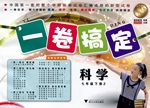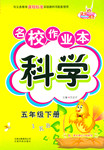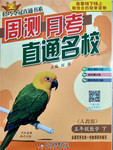题目内容
I once had a friend that was diagnosed with terminal cancer, and the news that he might only live up to six months was a great shock to him, his family, and his friends.However, in spite of the serious illness, he was initially determined to look into all available treatments that might cure or extend his life.I think that when you find yourself in such situations, you tend to look up every possible way for hope of saving your life.
As months went on and his health grew worse, I noticed an unexpected change in attitude that came over him.He had also been a happy person with a cheerful personality, but rather than give in to discouragement and self-pity, he took comfort in God and humanity.His talks focused on others rather than himself, and he spoke of the afterlife as something he was prepared for, believing that his concerned ancestors, including his mother and father, were there waiting for him.
During the last few months, weeks, and days of his life, he was kindly cared for by family, friends, his loving wife, who looked after both his physical and emotional needs, and workers from a local hospice (安养院) came to the home to regulate his medication and provide any other needed support.He didn't complain about his fate, and he willingly allowed others to serve him.
Indeed, one might think why God allows death and suffering in our world, but for me, such experiences taught me to value family more and kindness for others.You often can't learn these important attributes in the lap of luxury, and perhaps, such an experience is the greatest and final gift the illness can give those left behind.
66.Which word can best describe the man's initial reaction as soon as he was diagnosed with cancer?
A.Satisfied. B.Surprised. C.Terrified. D.Confused.
67.What did the man do after he first learned of his illness?
A.He was operated on immediately.
B.He retired from his job.
C.He researched cancer treatments.
D.He felt sad, doing nothing.
68.What was the man's main source of comfort after several months with the disease?
A.His family and friends. B.His belief in humanity.
C.His doctors’ encouragement. D.The care from others.
69.What did the author learn from his friend’s story?
A.Giving more respect to friends. B.Extending life as possible.
C.Caring for yourself and enjoying luxury. D.Getting comfort from God.
70.What does the author mainly want to tell?
A.All people will face death, and thus, we must prepare for it spiritually.
B.Our characters can be strengthened by such an unpleasant situation.
C.Families provide the best support system during such a crisis.
D.People should help those who have got serious illness.
BCBAB

 倍速训练法直通中考考点系列答案
倍速训练法直通中考考点系列答案 一卷搞定系列答案
一卷搞定系列答案 名校作业本系列答案
名校作业本系列答案 轻巧夺冠周测月考直通名校系列答案
轻巧夺冠周测月考直通名校系列答案I once had my Chinese MBA students brainstorming on “two-hour business plans”. I separated them into six groups and gave them an example: a restaurant chain. The more original their idea, the better, I said. Finally, five of the six groups presented plans for restaurant chains. The sixth proposed a catering service. Though I admitted the time limit had been difficult, I expressed my disappointment.
My students were middle managers, financial analysts and financiers from state owned enterprises and global companies. They were not without talent or opinions, but they had been shaped by an educational system that rarely stressed or rewarded critical thinking or inventiveness. The scene I just described came in different forms during my two years’ teaching at the school. Papers were often copied from the Web and the Harvard Business Review. Case study debates were written up and just memorized. Students frequently said that copying is a superior business strategy, better than inventing and creating.
In China, every product you can imagine has been made and sold. But so few well developed marketing and management minds have been raised that it will be a long time before most people in the world can name a Chinese brand.
With this problem in mind, partnerships with institutions like Yale and MIT have been established. And then there’s the “thousand talent scheme”: this new government program is intended to improve technological modernization by attracting top foreign trained scientists to the mainland with big money. But there are worries about China’s research environment. It’s hardly known for producing independent thinking and openness, and even big salary offers may not be attractive enough to overcome this.
At last, for China, becoming a major world creator is not just about setting up partnerships with top Western universities. Nor is it about gathering a group of well-educated people and telling them to think creatively. It’s about establishing a rich learning environment for young minds. It’s not that simple.
【小题1】 Why does the author feel disappointed at his students?
| A.Because there is one group presenting a catering service. |
| B.Because the six groups made projects for restaurant chains. |
| C.Because all the students copied a case for the difficult topic. |
| D.Because the students’ ideas were lacking in creativeness. |
| A.China can make and sell any product all over the world |
| B.high pay may not solve the problem of China’s research environment |
| C.cooperation with institutions has been set up to make a Chinese brand |
| D.the new government program are aimed at encouraging imagination |
| A.Look for a New Way of Learning. | B.Reward Creative Thinking. |
| C.How to Become a Creator. | D.Establish a technical Environment. |